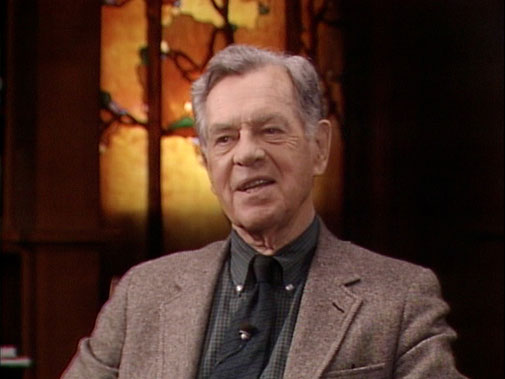Religious Language
Dale Hathaway
2018-02-05 Mon
Created: 2020-03-02 Mon 15:32
Table of Contents
Religious language
Question re. language:
- Describe in words who you are
- Explain what coffee tastes like to someone who has never tasted it
- Convey the meaning of a spiral staircase without using your hands
- What is the meaning of a "blink"
- Why is there something rather than nothing?
- Using only words, explain the most beautiful thing you have ever seen.
hermeneutics / interpretation
hermeneutics at work
1 In the beginning when God created1 the heavens and the earth, 2 the earth was a formless void and darkness covered the face of the deep, while a wind from God2 swept over the face of the waters. 3 Then God said, "Let there be light"; and there was light. (NRSV)
Like Poetry
Joseph Campbell: https://youtu.be/R7xuLN8WIkI
Most often poetic in the sense that, like poetry, it seeks to use ordinary words to convey extraordinary meanings.
 |
Religious Myth:
- A story that sets up a world by describing ultimate reality and its relationship to humanity.
- Myths seek to explain the ultimate meaning of the universe (cosmos) and our existence, its ultimate origins, destiny, order (or disorder) and relationships.
- Purpose = revelation of the nature of the sacred, the universe, and human nature.
- In short, “How does reality makes sense in light of the sacred?"
Religious Myth:
- Myths seek to narrate or reveal a transcendent reality and its relation to ordinary reality.
- Mythic time transcends ordinary time.
- Mythic events transcend “ empirically observable" events.
Religious Myth:
- Myths do not aim at scientific truth
- Myths represent collective wisdom of a community over time
- Myths frequently communicate through exaggeration
- Myths provide a lense for seeing the world
Religious Myth:
- Note Well: Many of us may instinctively think of "myth" as something that is false or fictional. This is not how the term is used in this course.
Religious stories
- "Religion is my story being shaped by another (religious) story."
- religious stories not told to hold onto a historical truth but to disclose a notion of the sacred to people.
Functions
- Functions include:
- passes on the traditions of a people
- recall/retell "paradigmatic moments and/or persons"
- vehicle for revelation
Parable:
- A story that upsets an existing world or turns it upside down;
- makes a point by violating our expectations and calling into questions our assumptions.
- It seeks to shock the hearer into seeing ordinary things in a new way, i.e., in light of the sacred reality which is totally “other" than the ordinary and customary.
- A parable seeks to move people into a deeper engagement with sacred reality.
Parable:
- Sacred figures often perform “parabolic actions" or actions that upset the way things are and open our eyes to a new reality.
Allegory
- … are stories in which the various characters and incidents actually represent figures and events not a part of the story as such.
- cp. George Orwell's Animcal Farm
- some of Jesus' parables were "explained" by his followers through the use of allegory
Examples of Parables/Parabolic Actions
- Zen koan: "What is the sound of one hand clapping?"
- A seeker to the Buddha "Are you a god or a magician?"
- Buddha: "I am not a god or a magician. I am awake."
- Awake seems ordinary but it is not. Greatness can't lie in it.
Examples of Parables/Parabolic Actions
- Jesus seeks to open people's eyes to the kingdom of God when he reads from Isaiah 61:1-2 in Luke
"The Spirit of the Lord Yahweh is upon me, for he has anointed me to bring glad tidings to the poor. He has sent me to proclaim liberty to captives and recovery of sight to the blind, to let the oppressed go free, and to proclaim a year of favor from Yahweh [a jubilee year]" . . . and a day of vengeance for our God . . Luke 4:18-19
Examples of Parables/Parabolic Actions
- Good Samaritan = like the good Al Qaeda terrorist. Our social status does not determine our holiness; but our compassion—even a compassion that violates social customs re: ritual purity. That is what God wants.
- Matthew 25: Whenever you did it to the least of my brothers and sisters you did it to me—Christ is encountered in the needy.
- Prodigal Son (Who is lost, the younger or the older son?) or Workers in the Vineyard—those who worked a little get paid the same as those who worked a lot; or Unforgiving debtor. (Luke 15-16)
Sacred Stories
4 functions of Sacred Stories (including scriptures):
- connect with sacred,
- order cosmos,
- pass on the traditio, and
- instill ethical expectations and norms
Other Religious Language
- canon
- A measuring reed or stick, ruler, standard; list of authoritative texts/scriptures in a tradition
- Scriptures
- Literally "writings" (scripture – "that which is written"), writings considered sacred and authoritative in a particular community.
Other Religious Language
- Theology
- Understanding of or reflection on God-the sacred-faith;
- "faith seeking understanding"
- Systematic explanation of the meaning of sacred stories and their conceptual relations as well as translation of this meaning in contemporary language.
- Transform story into doctrine that speaks to today's world.